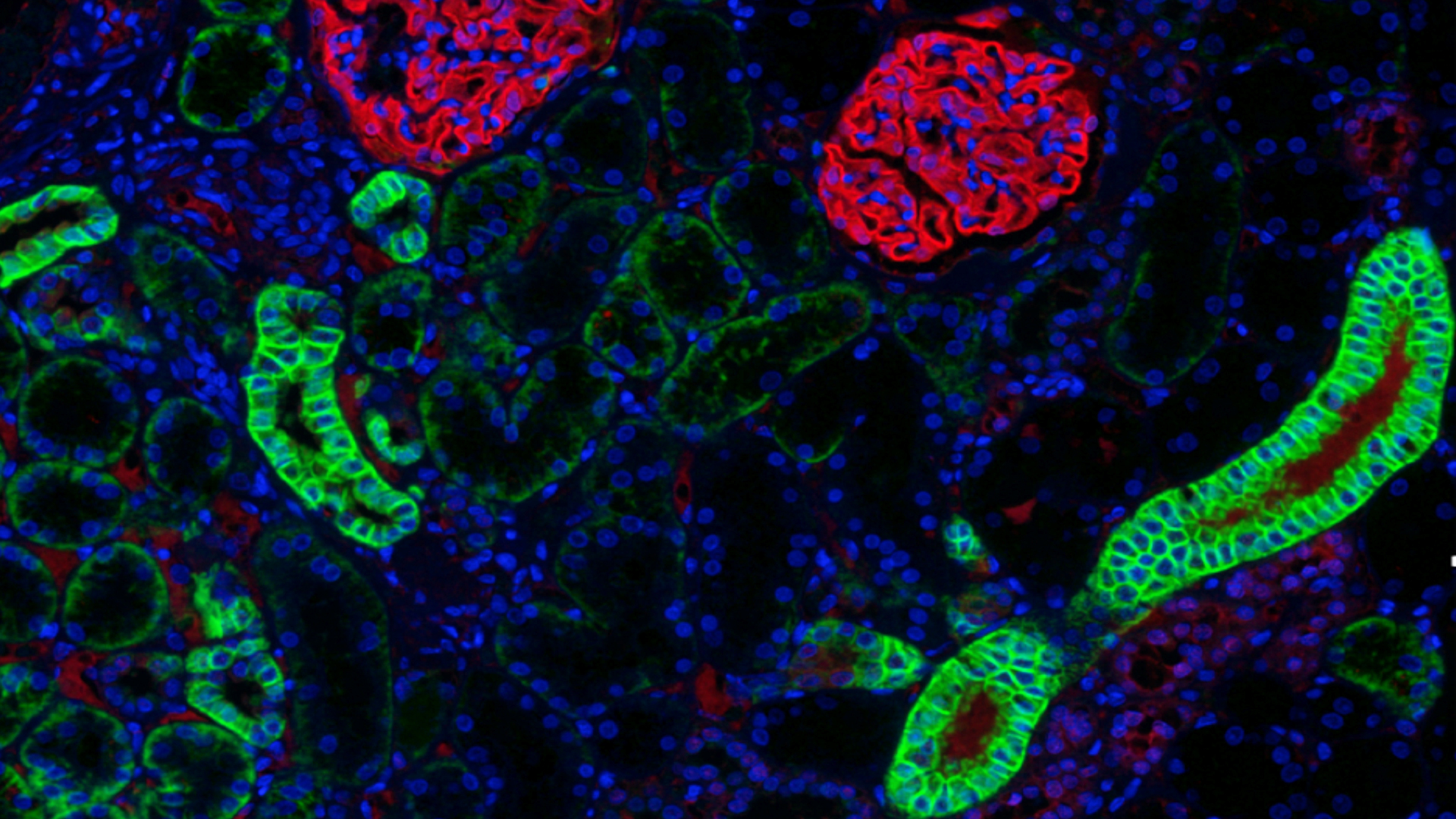The Human protein Atlas celebrates 20 years
The Human protein Atlas celebrates 20 years The Human Protein Atlas, a multinational research project and SciLifeLab Research Community Program (RCP), now celebrates its 20 year anniversary. The project aims to map all human proteins in cells, tissues and organs using technologies such as antibody-based imaging, mass spectrometry-based proteomics, transcriptomics and systems biology, and is led by SciLifeLab researcher Mathias Uhlén (KTH).
To celebrate the anniversary, the journal Science has published a booklet called “The Human Protein Atlas – a 20-year journey into the body” and a “microsite” that combines facts with breath-taking videos of the human body, has also been launched. In total, eleven movies that explore the human body using a novel technology for 3D-imaging based on light-sheet microscopy will be published.
The latest version (20) of the open access Human Protein Atlas will also be released, adding a new Single-Cell Type Atlas to allow the exploration of all human genes in 192 different human cell types. The new version includes a new subcellular localization, “nucleolus rim”, as well as a detailed analysis of the human prefrontal cortex, a complex brain region involved in cognitive and emotional processes and psychiatric disorders.
”We are excited about these new additions to the Human Protein Atlas and that the HPA program, after 20 years of focused and diligent research, has become one of the world’s most visited biological databases, contributing to thousands of publications every year around the world in the field of human biology and disease”, says Mathias Uhlén, Director of the Human Protein Atlas consortium.
In an expansive supplement published by Science and American Association for Advancement of Science (AAAS), a journey is taken through the 20 years since the establishment of the Human Protein Atlas (HPA) consortium to underscore milestones reached and celebrate updates, releases and additions to the atlas. For the reader’s convenience, reprints of the relevant journal articles associated with the most important of these milestones are provided.
“It is our hope that this publication will not only be a useful reference, but will also give readers a sense of the enormity of the task undertaken by the Human Protein Atlas project, the extraordinary advances that have resulted from it, and the crucial information that this database provides for researchers everywhere”, says Sean Sanders, Senior Editor for Custom publishing at the journal Science and project leader for the booklet.
Join the launch webinar of the 20:th version of the Human protein Atlas
View all the new and old videos at the HPA webpage
Enter the new microsite and watch the new breath-taking 3D-videos
Experience the 20:th anniversary booklet published by Science
To find out more about the anniversary and the latest release of the Human Protein Atlas read the entire press release.





